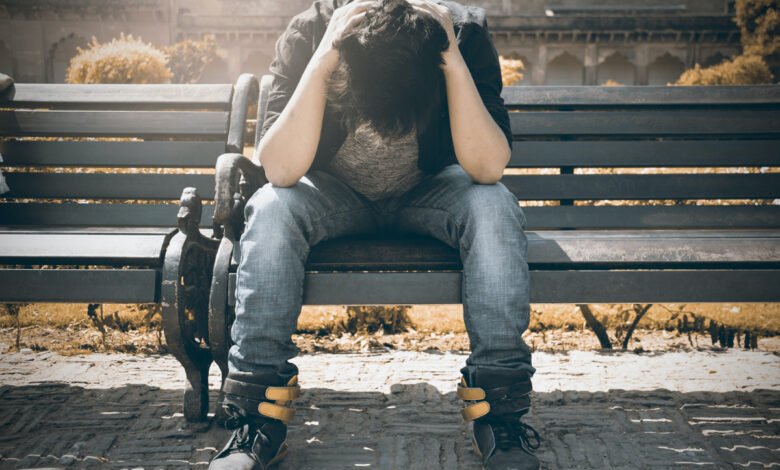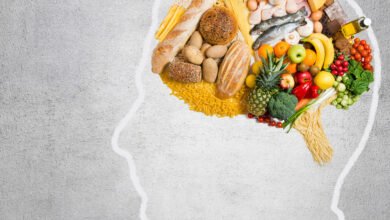11 Common Signs of Depression


Depression is a serious mental illness that affects millions of people worldwide. It can be a difficult illness to identify, as its symptoms can vary greatly from person to person. However, some common signs of depression are important to recognize. In this article, we will explore 11 common signs of depression and what you can do if you or someone you know is experiencing them.
Depression is a common mental illness that affects millions of people around the world. It is a condition that can cause a range of symptoms, including persistent sadness, loss of interest, and feelings of hopelessness. Depression is a serious illness that requires treatment, but many people are unaware of the signs and symptoms of depression. In this article, we will discuss 11 common signs of depression that you should be aware of.
Read More: Tips on Help a Family Member Who Is Having Depression
Persistent Sadness
Persistent sadness is one of the most common signs of depression. While it’s normal to feel sad or down from time to time, persistent sadness is different. It’s a feeling of sadness or hopelessness that doesn’t go away, and it can interfere with daily life. People with depression may feel sad, empty, or hopeless most of the time, and they may lose interest in activities they used to enjoy. Persistent sadness can be a symptom of major depressive disorder, which is a type of depression that is characterized by persistent sadness and a lack of interest in activities.
Loss of Interest

Loss of interest is another common sign of depression. People with depression may lose interest in activities they used to enjoy, such as hobbies, sports, or spending time with friends and family. They may also lose interest in their work or school, and have difficulty concentrating or staying focused. Loss of interest can be a symptom of both major depressive disorder and dysthymia, which is a milder, but longer-lasting form of depression. People with dysthymia may have symptoms that are less severe than major depression, but they can last for years and interfere with daily life.
Fatigue and Lack of Energy
Fatigue and lack of energy are also common signs of depression. People with depression may feel tired or have low energy most of the time, even after getting enough sleep. They may have difficulty getting out of bed in the morning and may feel exhausted even after doing simple tasks. Fatigue and lack of energy can be a symptom of both major depressive disorder and dysthymia. In some cases, people with depression may also experience physical symptoms such as headaches, muscle aches, and digestive problems.
Changes in Appetite
Changes in appetite are another common sign of depression. People with depression may experience a significant change in their appetite, either an increase or a decrease. They may lose weight or gain weight without trying and may have little interest in food or find that nothing tastes good.
Changes in appetite can be a symptom of both major depressive disorder and dysthymia. In some cases, people with depression may also experience other physical symptoms such as stomach problems or headaches.
Sleep Problems
Sleep problems are also a common sign of depression. People with depression may have difficulty falling asleep or staying asleep and may wake up feeling tired even after getting enough sleep. They may also experience changes in their sleep patterns, such as sleeping more than usual or not sleeping enough. If you are experiencing sleep problems, it’s important to talk to a healthcare professional. Treatment options for depression may include therapy, medication,
Difficulty Concentrating
Difficulty concentrating is another common sign of depression. People with depression may have difficulty paying attention, making decisions, or remembering things. They may also have trouble focusing on tasks and may feel like their thoughts are slowed down. If you are experiencing difficulty concentrating, it’s important to talk to a healthcare professional. Treatment options for depression may include therapy, medication, and lifestyle changes such as exercise and stress management.
Feelings of Guilt or Worthlessness
People with depression often experience feelings of guilt or worthlessness. They may feel like they are a burden on others or like they are not living up to their expectations. These feelings can be very distressing and can contribute to a sense of hopelessness. Feelings of guilt or worthlessness are also common signs of depression. People with depression may feel like they are worthless or that they have let down themselves or others. They may have feelings of shame or self-blame, even if there is no clear reason for these feelings.
Physical Symptoms
Depression can also manifest in physical symptoms. People with depression may experience headaches, stomach problems, muscle aches, and other physical complaints. These symptoms may not respond to traditional treatments and may persist even after other symptoms of depression have improved.
Physical symptoms can be a symptom of both major depressive disorder and dysthymia. In some cases, people with depression may also experience changes in their appetite, sleep problems, and difficulty concentrating.
Irritability

Irritability is another common sign of depression. People with depression may feel irritable or agitated, even in situations where they would not normally feel this way. They may be quick to anger and may have difficulty controlling their emotions. If you are experiencing irritability that may be related to depression, it’s important to talk to a healthcare professional. Additionally, it may be important to rule out any underlying medical conditions that could be contributing to your symptoms.
Thoughts of Death or Suicide
Finally, thoughts of death or suicide are one of the most serious signs of depression. People with depression may feel hopeless or that life is not worth living. They may have thoughts of suicide, and may even make plans or attempts to harm themselves.
Thoughts of death or suicide are a symptom of major depressive disorder, but can also be present in other forms of depression. If you or someone you know is experiencing thoughts of suicide, it’s important to seek immediate help. Contact a healthcare professional, emergency services, or a suicide hotline for support.
Withdrawal from Others
Finally, people with depression may withdraw from others. They may avoid social situations and may become isolated from friends and family. This can contribute to feelings of loneliness and can make it even more difficult to cope with depression. People with depression may feel disconnected from friends and family and may have difficulty enjoying activities that they used to find pleasurable. They may isolate themselves and avoid social situations, even when they would normally enjoy them.
Conclusion
Depression is a serious mental illness that can have significant consequences if left untreated. It is important to recognize the signs and symptoms of depression and seek help if you or someone you know is experiencing them. There are effective treatments available for depression, including therapy and medication, that can help manage symptoms and improve quality of life.
Read More: 8 Best Strategies to Combat Depression, Stress, and Anxiety in Workspace
FAQs
What causes depression?
Depression can be caused by a combination of genetic, biological, environmental, and psychological factors.
Can depression be cured?
While there is no cure for depression, it is a treatable illness. With the right treatment and support, people with depression can manage their symptoms and lead fulfilling lives.
What are some treatment options for depression?
Treatment options for depression include therapy, medication, and lifestyle changes such as exercise and stress management.
How can I help someone with depression?
If you know someone who is experiencing symptoms of depression, it is important to encourage them to seek help from a healthcare professional. You can also offer support and understanding, and help them access resources and treatment options.
What should I do if I or someone I know is experiencing suicidal thoughts?
If you or someone you know is experiencing suicidal thoughts, it is important to seek help immediately. Contact a healthcare professional or emergency services for support. Remember, there is help and hope available.







